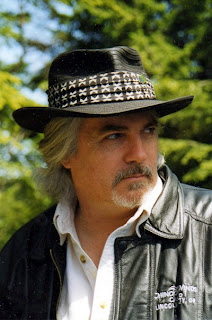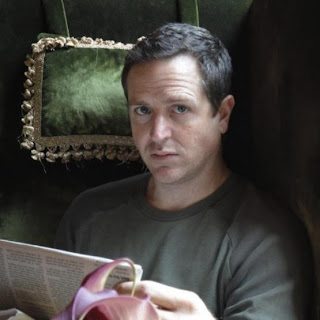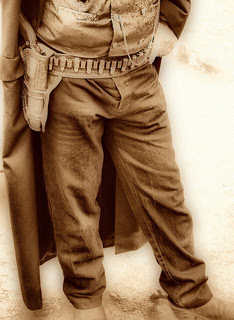I discovered
Lindsay Buroker's blog only within the last few months but within that brief time it has become one of my favorites. A couple days ago Lindsay posted an article I want to share with you about how to improve the sales of your books.
Don't Put All Your Eggs In One Basket = Don't Put All Your Books In Amazon
Don't put all your books in one estore even if that store is Amazon. KDP Select can be a wonderful tool to sell books, but it's not a good idea to keep your books in the program indefinitely.
Select can do wonders for increasing your book's visibility, but then experiment. Try out other venues. You can still keep it at Amazon, just not in KDP Select.
Don't misunderstand, I think Amazon is
great. But none of us knows what the future holds. What if Amazon
were to become less indie friendly? My mother told me to hope for the best and expect the worst.
Also, Kris Rusch has a great point: the more estores your books are in the easier it is for your readers to find them. If you want to turn readers into
true fans then making it easy for them to buy your books is a good start. (See:
Does Amazon KDP Select Drive Away True Fans?)
How To Market Your Books In Other Venues
Most venues, particularly Barnes & Noble, don't give books the same kind of exposure as Amazon, so what are the most effective ways to increase the visibility of your books in these less friendly markets?
Lindsay tried:
- the
Nook Boards &
Mobile Read
- the
UK Kindle Users Forum (there's also the
US Kindle Users Forum)
Lindsay used the forums to chat with readers and writers and she gave away coupons. She concludes:
In general ... I find forums to be a time sink. You can spend a lot of hours there and earn few, if any, sales. I generally only recommend forums for people who enjoy being a part of that sort of community anyway.
The Power Of Perma-Free
What ended up working for Lindsay was making one of her books permanently free and distributing it as widely as possible. People loved her work, went looking for more, and when they found her other books they were happy to pay for them. Lindsay writes:
What did make a difference for me, especially with Amazon UK
and the international Apple stores, was having a book permanently free
on those sites. I’ve talked a lot about this before, but I made my first
Emperor’s Edge book (and eventually my first Flash Gold novella as
well) free at Smashwords about a year ago. I had the freebies
distributed through their partner sites, and Amazon eventually matched
the price.
What took longer, but did eventually happen, is that Amazon UK (and DE, ES, IT, etc.) price-matched the ebook to free as well. That’s
when I started seeing sales of my other books in those stores. It was a
similar process for iTunes. It’s taken a while for the free ebooks to
percolate through, showing up in the international Apple stores, but I’m
now selling books every month in Apple AUD, DKK, GBR, etc. and am
making between $1,500 and $2,000/mo overall in overseas sales.
A couple of tips:
- Make the first book of a series perma-free.
- Free works best if the book is
permanently free. The only way to make your book free in certain markets is to offer it for free on a site like Smashwords. Price-matching bots/spiders will come along notice it's free, tell momma spider about it, and then momma spider will change the price on her site as well. This process can take
months though.
The Benefits of making a book perma-free
- A huge benefit of using a perma-free book for marketing is that it requires
no additional time investment on your part.
- Free book catalogs are the new libraries. As libraries continue to feel the economic crunch, more and more readers are using free book catalogs as though they were libraries to discover new authors. If they read your book and like it, they'll buy more.
It All Adds Up
You've heard of the death of a thousand cuts? The idea is that you can receive one cut and it's shallow and you bleed a little bit but that one cut is no threat to your life. If you receive a thousand of them, though, or tens of thousands of them, well, that's a different story.
It's the same with books, only in a happy way. You might only earn 10 dollars from one store over six months, 20 dollars from another, and so on, and by itself ... 10 dollars, 20 dollars, those amounts are negligible. They're not going to buy food for the day let alone pay the rent! But if you earn 10 dollars from 200 stores, well, then it begins to add up.
Perma-Free: An Experiment
I've blogged before about writing 15 novellas, 3 per series, and then bundling them into 5 series and offering them on Amazon though KDP Select. One advantage of this strategy is that
a book would be free at all times.
Another strategy--and I believe someone suggested this in the comments--would be to permanently set the first novella of each series to free and offer them on every available platform. (See:
How To Earn A Living As A Self-Published Writer)
The perma-free strategy would take longer. It takes time to get your books into all possible markets and it would take time for the first book/novella of each series to be set to free, but over time I could see it being more lucrative than keeping them all in Amazon's KDP Select Program.
If anyone has done this I'd love to hear from you!
All quotations have been from Lindsay Buroker's wonderful article:
How Do You Improve Sales at Amazon UK, Apple Overseas Stores, and Other International eBook Sites?
# # #
NaNoWriMo Update: I'm at 32,462 words, a bit short of the 33k I was aiming for. I'm going to try and make that up tonight and have 35k done by the end of the day. * crosses fingers! *
Other articles you might like
-
The Nature of Creativity: Science And Writing: Don't Edit Yourself
-
Pixar Luminary Andrew Stanton's TED Talk: Make Your Reader Care
-
Time Management For Writers: Nanny For Chrome
References
-
Self-Publishing Success Stories. I didn't directly refer to this in my article, but it's an amazing list! Here you'll fund hundreds of indie publishing success stories. Inspirational!
Photo credit: "
Campos de cultivo" by
www.jordiarmengol.net (Xip) under
Creative Commons Attribution 2.0.






















